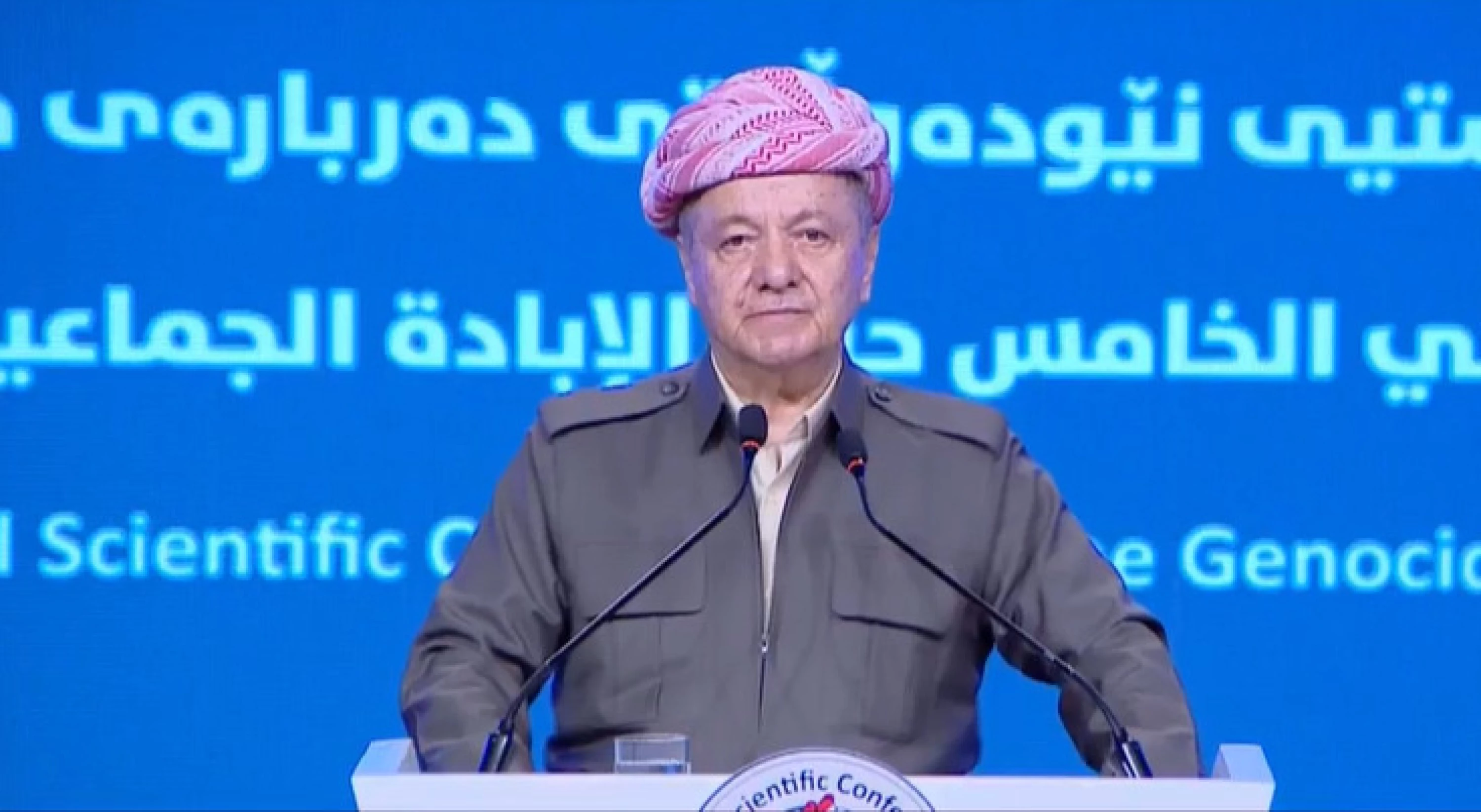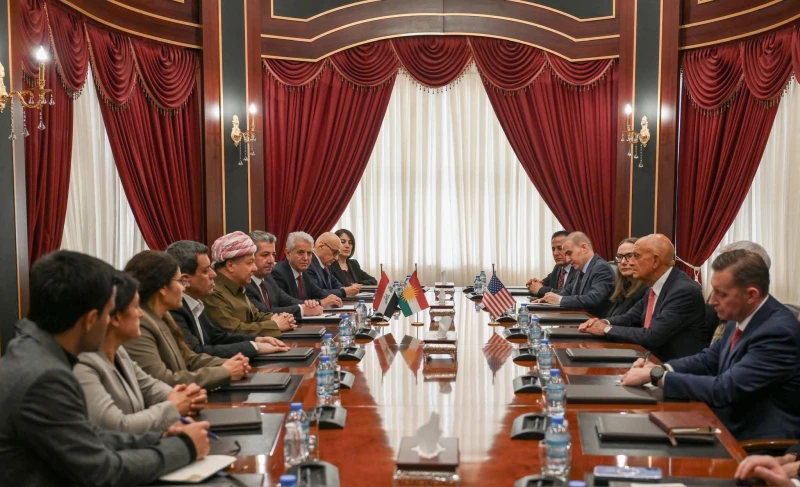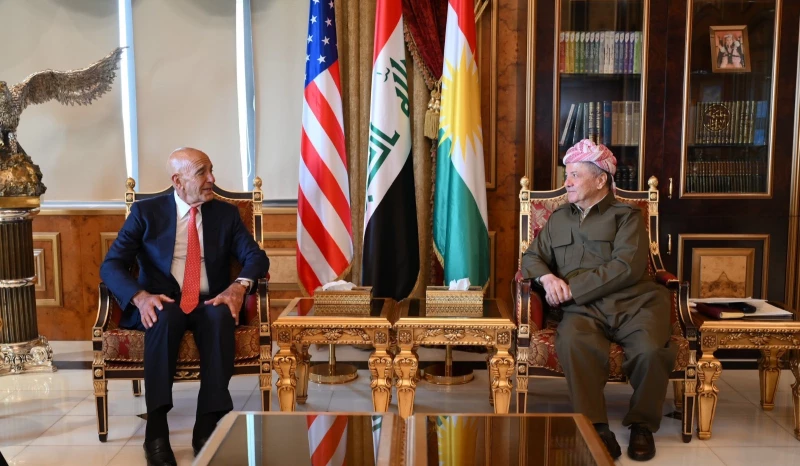ERBIL, Kurdistan Region of Iraq – President Masoud Barzani on Tuesday called for an end to the culture of Anfal in Iraq, referring to the Baath regime’s genocidal campaign against its Kurdish population in the 1980’s, arguing that the mentality is still present in the country.
Addressing a conference on the genocide of the Kurdish people throughout history, Barzani said that “there are still some who have remained under the culture created by Anfal.”
“This cannot stay,” Barzani said. “This culture cannot stay in Iraq.”
Barzani stressed that the atrocities the Kurdish people were subjected to must never be forgotten by the new generation, and that Kurdish youth must know about the oppression their forecomers endured, to ensure that genocide is never allowed to happen again.
The Kurdish people saw the brunt of Saddam Hussein's bloody and iron-fisted rule, as the former Iraqi dictator pursued a well-documented policy of extermination against the ethnic group.
Crimes such as the Anfal campaign, which killed over 182,000 people in the 1980s, and the Halabja chemical gas attack in 1988, in which around 5,000 lost their lives, are remembered and mourned every year in the Kurdistan Region.
“The fate of the Kurdistan people throughout history has been pain, suffering, and oppression,” Barzani said.
The Kurdish leader also highlighted the “greatness” of the Kurdish people in the face of their oppressors. “Once God gave them power, they did not seek vengeance. Especially during the 1991 uprising, two battalions of the Iraqi army fell in the hands of the Peshmerga and the people of Kurdistan, not a single Iraqi soldier was killed or assaulted,” Barzani said.
In 1991 Kurds arranged a successful uprising in which they were able to expel Baathist forces from their territories with the help of the UN-mandated no-fly zone, hampering Hussein's efforts to carry out aerial attacks on northern Iraq and allowing for the entry of humanitarian aid.
Over a decade after the fall of Hussein, the Kurdish people of Iraq once again experienced tragic atrocities, when the Islamic State (ISIS) took over large swathes of Iraqi territory in 2014, including the Yazidi heartland of Sinjar, where they launched a brutal campaign of killings, abductions, genocidal rape, and forced conversions of members of the ethnoreligious minority group.
More than 5,000 Yazidis were killed in the ISIS campaign, and over 6,000 others, mostly women and children, were abducted and sold into sexual slavery. Thousands of abducted Yazidis still remain missing.
“The latest genocide that makes the heart bleed was the genocide of the Yazidis in the year 2014," said President Barzani.
The Kurdish leader emphasized that compensating the people is the duty of the Iraqi federal government, stating that Baghdad “should not try to evade it.”
“It is the [Kurdistan] Regional Government's duty to keep advocating for that,” he added.
Kurdish officials have repeatedly sought compensation for the victims’ families. To date, the remains of thousands of victims are to be found somewhere in Iraq.
Barzani thanked the Swedish and British parliament's for recognizing the atrocities against the Kurdish people as genocide, calling on other European parliaments to follow suit.
Kurdish leaders have repeatedly pressed the international community to recognize the crimes perpetrated against their people as genocide.



 Facebook
Facebook
 LinkedIn
LinkedIn
 Telegram
Telegram
 X
X


